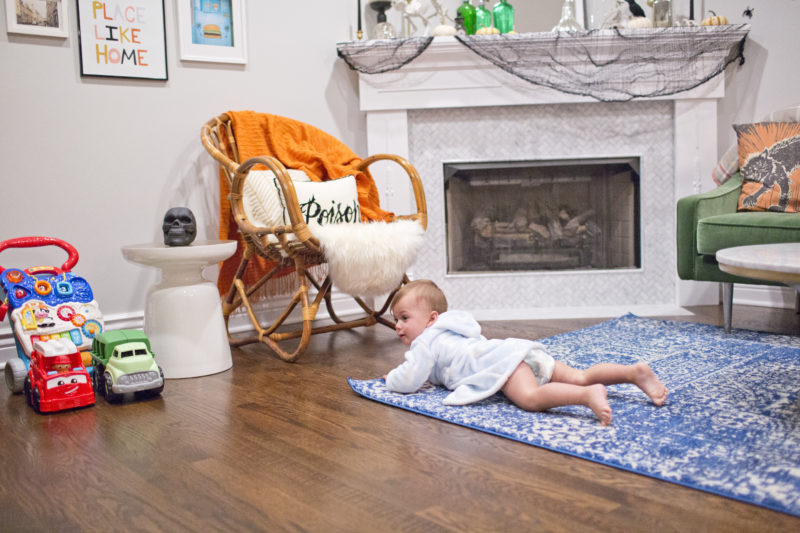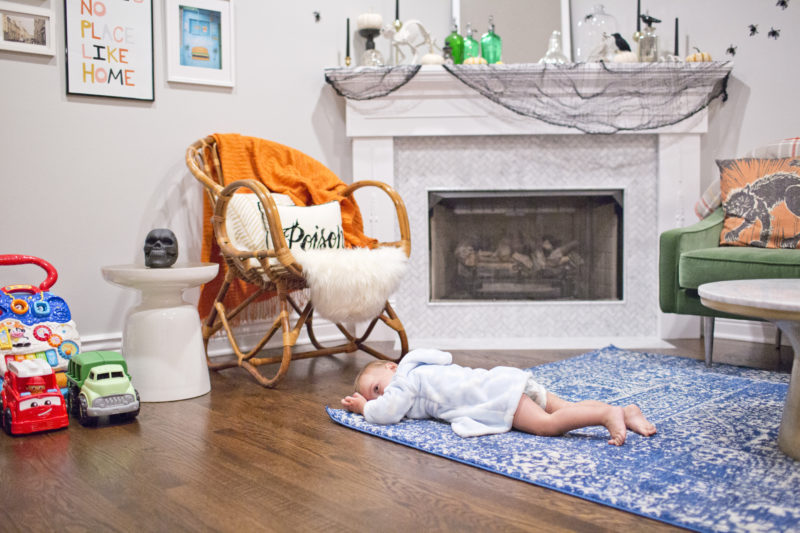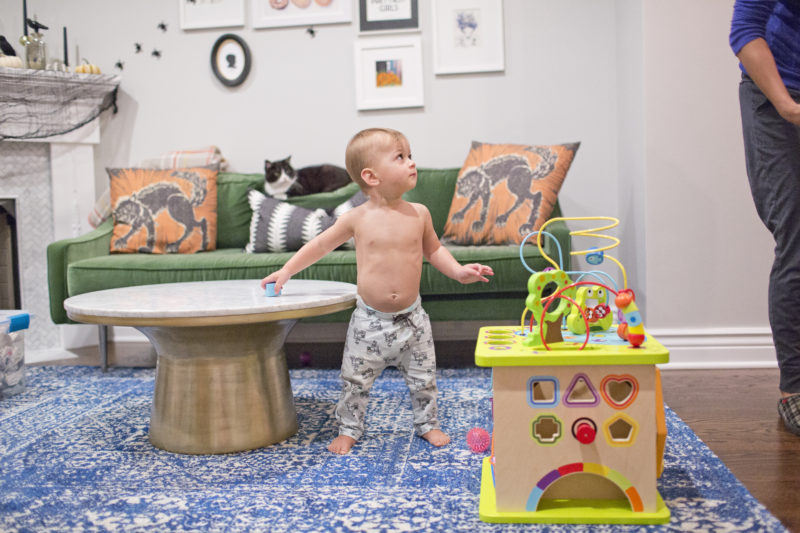No, really. That isn’t a rhetorical question. I need to know–my sanity depends on knowing: how do you respond to tantrums?

Finn is 14.5 months old. That’s a very specific age, I know. This week, a student asked how old Finn was and, when I said he was 14.5 months, my student rolled his eyes and scoffed, “Why can’t you just say that he is one?”
“Because, at this age, one week can mean the difference between a demon and a kitten,” I replied.
And it’s true. We read–and talked–a lot about Wonder Weeks and the various developmental stages during the first year. Finn followed most of the predicted patterns; we’d have weeks that were blissful and weeks where it took every ounce of restraint not to throw myself out of a very high window. Mostly, we survived the latter.
Still, though, Finn is experiencing a lot of mood swings. He’s had a lot of change in his life, lately, and some of the change can be attributed to those shifts.
When he started daycare, we experienced a couple weeks of serious separation anxiety, accompanied by a significant uptick in the quantity and intensity of tantrums. We’re talking full-on, body-goes-limp, dragging-himself-on-the-floor, head-banging tantrums.
“This cannot be happening so soon,” I thought. Don’t tantrums generally start when toddlers turn two? Isn’t that why they are called the “terrible twos,” after all? Is Finn just so intellectually advanced that he’s displaying two-year-old behaviors at one? (Yeah, okay, so I was trying to make lemonade out of lemons.)
So, of course, I became obsessed with trying to figure out how we should react. And, of course, there are approximately 1, 872, 098 theories about this. Ignore him. Don’t ignore him. Smother him with hugs and affection, letting him know he’s safe. Stick his ass in a closet and close the door. Put him in a corner. Put him on the couch. Put him in his crib. Talk to him. Don’t talk to him. Laugh it off. Don’t show any emotion. Don’t make eye contact. Call a priest.
If you can name it, there’s a book about it.
Mostly, we’ve decided to try and ignore his behavior as much as possible, unless he’s banging his head on a hard surface. Then, we move him to a less-hard surface and let him go to town. Surprisingly, this has been pretty effective.


See what we have, there? We have Finn getting over a tantrum, just as I’m grabbing my camera. Minutes earlier, he’d thrown himself face-down on the carpet, protesting something ridiculous. I can’t remember what, exactly. His truck probably looked at him the wrong way. Or I said “kitty” instead of “cat.” One can only imagine.
Anyway, there he was, banging his head on the carpet, when he realized it didn’t have quite the dramatic effect he’d intended. So, he does what any maniacal toddler would do: he scooted out jussssssst enough so that his head would pound against the wood floor, instead.
Then, he got over it. Until he saw I was photographing him. At which point, he threw himself down all over again in truly award-worthy performance, peeking up to make sure that I was catching it all. (I was.)
His tantrums have waned quite a bit since he’s gotten accustomed to daycare, but he still has them. And I’m sure there are a lot more coming. This is possible the least patient, most independent and willful child I’ve ever met.
He’s also starting to really challenge our authority.

He’ll knowingly do something we’ve just told him he can’t do, all while looking us straight in the eye, waiting for a reaction. We can only say “no” so many times. And then remove him from the situation. And then, guiltily, give him a little smack on the hand when he’s really not listening. We both feel pretty icky about that last one, and we’re not sure it’s effective, anyway, but sometimes we go there.
I’d love to hear tips from more experienced parents. What do you all do to respond to tantrums and mischievous behavior at such a young age? Other than down bottles of wine in the pantry, of course.